Black Sunday (Italian: La maschera del demonio), also known as The Mask of Satan and Revenge of the Vampire in the UK, is a 1960 Italian gothic horror film directed by Mario Bava from a screenplay by Ennio de Concini and Mario Serandrei (with uncredited contributions by Bava, Marcello Coscia and Dino Di Palma), and starring Barbara Steele, John Richardson, Arturo Dominici and Ivo Garrani. It was Bava's directorial debut, although he had completed several previous feature films without receiving an onscreen credit. Based very loosely on Nikolai Gogol's short story "Viy", the narrative concerns a witch who is put to death by her own brother, only to return 200 years later to seek revenge on her descendants.
| Black Sunday | |
|---|---|
Italian theatrical release poster | |
| Directed by | Mario Bava |
| Produced by | Massimo De Rita |
| Screenplay by |
|
| Based on | Viy by Nikolai Gogol |
| Starring |
|
| Music by | Roberto Nicolosi |
| Cinematography | Mario Bava |
| Edited by | Mario Serandrei |
Production companies |
|
| Distributed by | Unidis |
Release date |
|
Running time | 87 minutes |
| Country | Italy |
| Language | English Italian |
| Box office | ?139 million (Italy) |
By the social standards of the 1960s, Black Sunday was considered unusually gruesome, and was banned in the UK until 1968 because of its violence. In the US, some of the gore was censored in-house by distributor American International Pictures before its theatrical release to the country's cinemas, where it was shown as a double feature with Roger Corman's The Little Shop of Horrors. Despite the censorship, Black Sunday was a worldwide critical and box office success, and launched the careers of Bava and Steele. In 2004, one of its sequences was voted number 40 among the "100 Scariest Movie Moments" by the Bravo TV network.
Screenplay
In 1630 Moldavia, Asa Vajda, a witch, and her paramour, Javuto, are sentenced to death for sorcery by Asa's brother. Before being burned at the stake, Asa vows revenge and puts a curse on her brother's descendants. A metal mask with sharp spikes on the inside is placed over the witch's face and hammered into her flesh.
Two centuries later, Dr. Thomas Kruvajan and his assistant, Dr. Andre Gorobec, are traveling through Moldavia en route to a medical conference when one of the wheels of their carriage is broken, requiring immediate repair. While waiting for their coachman to fix it, the two wander into a nearby ancient crypt and discover Asa's tomb. Observing her death mask through a glass panel, Kruvajan breaks the panel (and the cross above it) by accident while striking a bat. He then removes Asa's death mask revealing a partially preserved corpse that is visible underneath, her face staring out malevolently. He cuts his hand on the broken glass. Some of his blood drips onto Asa's dead face.
Returning outside, Kruvajan and Gorobec meet Katia Vajda. She tells them that she lives with her father and brother Constantine in a nearby castle that the villagers all believe is haunted. Struck by her haunting beauty and sadness, Gorobec instantly becomes smitten with Katia. The two men then leave her and drive to an inn. Meanwhile Asa is brought back to life by Kruvajan's blood. She contacts Javuto telepathically and orders him to rise from his grave. He does so and goes to Prince Vajda's castle, where Vajda holds up a crucifix to ward the reanimated corpse away. However, Vajda is so terrified by the visit that he becomes paralyzed with fear. Katia and Constantin send a servant to fetch Dr. Kruvajan, but the servant is killed before he can reach the inn. It is the evil Javuto who arrives to bring Kruvajan to the castle. Javuto leads Kruvajan to Asa's crypt, and Kruvajan watches in horror as her coffin explodes. From its ruins, the witch hypnotizes Kruvajan and says she needs a few more drops of his blood, offering him eternal life (and a night of pleasure) in return. Asa then kisses him, turning him into her servant. By Asa's command, Kruvajan enters Vajda's room and murders him.
Asa's plan is to drain Katia of her life, believing that this act will grant her immortality. A little girl who had seen Javuto meet Kruvajan at the inn describes the dead man to Gorobec. A priest recognizes the description as being that of Javuto. The priest and Gorobec go to Javuto's grave and find Kruvajan's body inside the coffin. Realizing that he is now one of the undead, they kill the fiend immediately by marking him with the sign of the cross and ramming a small piece of wood through one of his eye sockets.
Javuto finds Katia and takes her to Asa. Asa begins to drain Katia, who ages rapidly during the act. Just as the witch goes to take her blood, she is thwarted by the crucifix around Katia's neck. Gorobec enters the crypt to save Katia but finds Asa instead. Asa pretends to be Katia and tells Gorobec that the now weakened and unconscious Katia is really the witch. She tells him to kill Katia immediately by staking her. He agrees but at the last possible moment he notices the crucifix she is wearing. He turns to Asa and opens her robe, revealing a fleshless skeletal frame. The priest then arrives with numerous torch-carrying villagers, and they burn Asa to death. Katia awakens from her stupor, her life and beauty restored, and is reunited with Gorobec.
- Barbara Steele as Katia Vajda/Princess Asa Vajda
- John Richardson as Dr. Andre Gorobec
- Andrea Checchi as Dr. Thomas Kruvajan
- Ivo Garrani as Prince Vajda
- Arturo Dominici as Igor Javuto
- Enrico Olivieri as Prince Constantine Vajda
- Antonio Pierfederici as Priest
- Tino Bianchi as Ivan
- Clara Bindi as Inn Keeper
- Mario Passante as Nikita, Coachman
- Renato Terra as Boris
- Germana Dominici as Sonya, Inn Keeper's Daughter
Pre-production
During 1959, Bava had assumed the directorial assignment of The Giant of Marathon from Jacques Tourneur, who left the production before most of the major sequences had been filmed. Bava, who had been that film's cinematographer, completed the film quickly and efficiently. This was not the first time Bava had been able to save a troubled movie for Marathon's production company, Galatea Film. During that same year, Bava had performed a similar salvage job on Caltiki – The Immortal Monster (1959), replacing Riccardo Freda as director after he had abandoned the picture in the middle of production. Even earlier, he had assumed the directorial role for I Vampiri (1957) after the temperamental Freda had also walked off the set of that film after only a few days. Bava did not receive director screen credit for any of his work on the three troubled Galatea films. After Bava completed Marathon, Nello Santi, the head of Galatea Film, subsequently offered him his choice of any property for his first directorial effort.
Writing
As a lover of Russian fantasy and horror, Bava decided to adapt Nikolai Gogol's 1835 horror story "Viy" into a feature film. However, the resultant screenplay (by Bava, Ennio De Concini and Mario Serandrei) in fact owed very little to Gogol at all, and seemed to be more a tribute to the atmospheric black-and-white gothic horror films of the 1930s, especially those produced by Universal Studios. The script takes only the most rudimentary elements from the story—the Russian setting and the idea of a witch coming back to life—and has a completely different narrative.
Casting
For the role of the evil Asa and her innocent descendant Katia, Bava noted: "A strange type was needed, and we chose Steele from pictures." Bava reportedly found Steele difficult to work with. According to Bava, the actress "was somewhat irrational, afraid of Italians. One day she refused to come to the set, because somebody told her I was using a special film-stock that made people appear naked." Steele recalled: "Lord alone knows I was difficult enough. I didn't like my fangs – I had them changed three times. I loathed my wig – I changed that four times. I couldn't understand Italian. I certainly didn't want to allow them to tear open my dress and expose my breasts, so they got a double that I didn't like at all, so I ended up doing it myself – drunk, barely over eighteen, embarrassed and not very easy to be around."
Filming
The production of La Maschera del Demonio began on 28 March 1960 at the studios of Scalera Film. The exteriors, as well as a few interiors, were shot at a rented castle in Arsoli. The final day of production was 7 May.
Steele never saw a complete screenplay for the film. Instead, she was simply handed the scenes she would play, and her dialogue, every morning of the production. According to Steele, "We were given the pages day to day. We had hardly any idea what was going down on that film. We had no idea of the end, or the beginning, either, not at all."
Both Steele and Dominici were originally fitted to wear sharp vampire fangs, but after only a few days of shooting, the fangs were discarded. The film's Production Manager, Armando Govoni, recalled, "hen we saw the rushes, especially in the close-ups, they looked too fake so editor Mario Serandrei cut around them."
Soundtrack
The original Italian score by Roberto Nicolosi was issued by Digitmovies AE in 2005, together with another Nicolosi score for The Girl Who Knew Too Much. A suite from Les Baxter's score was originally released on a promotional LP by the composer, whose contents made an authorized CD debut on a 1992 release by Bay Cities. Citadel Records reissued the same material in 1997 and just like the previous release, this CD also contained a suite of music from Baron Blood, another Bava film which also received a new score by Baxter for its American version. Baxter's complete score to Black Sunday was released in 2011 by Kritzerland, whose CD contains the music in chronological order.
The film premiered in Italy on 11 August 1960. In 1961 it was distributed in the US, France, Japan, Mexico, and West Germany. In 1962 it was shown for the first time in Austria and Denmark. The film was then seen in Sweden (1963) and Finland (1964). But it was banned in the UK until June 1968 due to its violent content.
American version
Samuel Z. Arkoff and James H. Nicholson, of American International Pictures, screened the Italian-language version of the film when they were visiting Rome in search of viable, inexpensive European made films to act as second features for their double-bills. They immediately recognized the film as a potential hit and bought the US rights for $100,000, reportedly more than the film's budget.
In order to make the film more accessible to American audiences, AIP trimmed over three minutes' worth of violence and "objectionable" content. Sequences excised or shortened included the burning "S" branded into Asa's flesh, the blood spewing from the mask after it was hammered into her face, the moist eyeball impalement of Kruvajan, and the flesh peeling off Vajda's face as he burned to death in the fireplace. In the original version of the film, Asa and Javuto were brother and sister; in the AIP version, Javuto became Asa's servant. In addition, some dialogue was "softened," including Asa's line, "You, too, can find the joy and happiness of Hades!" AIP modified it to "You, too, can find the joy and happiness of hating!"
Roberto Nicolosi's musical score was replaced by an effective but more generic "horror"-sounding one by Les Baxter, and the dialogue was completely redubbed into English. As the entire cast, with the exception of Checchi and Dominici, had spoken their lines in English, this was a relatively easy task. Galatea had provided AIP with their own English-language version, which had been completed by the Language Dubbers Association in Rome. However, Arkoff and Nicholson felt this version was stilted and "technically unacceptable", so a newly recorded English version was commissioned and produced by Titra Sound Corporation in New York City. Barbara Steele and John Richardson's voices were not heard in any version.
AIP tested several titles for the film, including Witchcraft, The House of Fright, The Curse, Vengeance and Demoniaque, before finally entitling their shortened version Black Sunday. The film premièred in the United States on 15 February 1961; it was presented
Watch movie Black Sunday 1960 Film online on Amazon
Watch movie Black Sunday 1960 Film online
Watch The Movie On PrimeDaddy Cool Full HD Movie Download
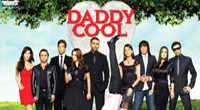
Anwar Full HD Movie Download

Ram Jaane Full HD Movie Download
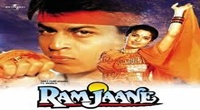
Dil Ne Phir Yaad Kiya (2003) Full HD Movie Download
.jpg)
Dr Vidya Full HD Movie Download
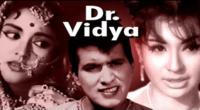
Namak Halal Full HD Movie Download
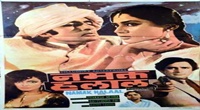
Mawaali Full HD Movie Download
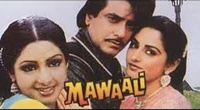
Aag Hi Aag Full HD Movie Download
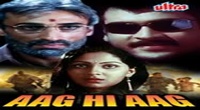
Double Dhamaal Full HD Movie Download

Aji Bas Shukriya Full HD Movie Download
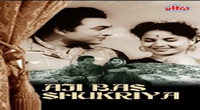
Hamar Sangi Bajrangbali Full HD Movie Download
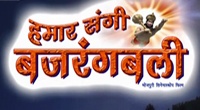
Kempegowda Full HD Movie Download
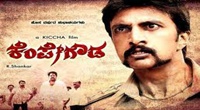
Jeet-Born To Win Full HD Movie Download

Bharya Bharthala Bhagotham Full HD Movie Download
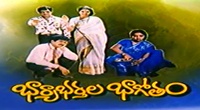
Chandra Mukhi Full HD Movie Download
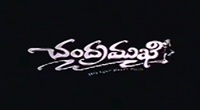
Gruha Pravesham Full HD Movie Download
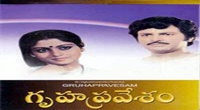
Datta Putrudu Full HD Movie Download
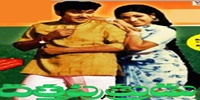
Andhrawala Full HD Movie Download
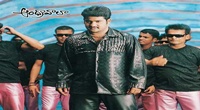
Jodhaa Akbar Full HD Movie Download

Bhoot Bungla Full HD Movie Download
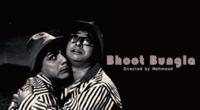
Mohabbatein Full HD Movie Download
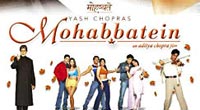
Download latest Movie from bollywood
- 1> baaghi 3
- 2> THE SKY IS PINK MOVIE FULL STORY AND REVIEW
- 3> Luka Chuppi
- 4> TO ALL THE BOYS I’VE LOVED BEFORE
- 5> Kabir Singh
- 6> Street Dancer 3D
- 7> Simmba
- 8> Gone Girl
- 9> The Girl Who Lived
- 10> Ludo
- 11> DILWALE DULHANIA LE JAYENGE
- 12> GUILTY
- 13> The Godfather
- 14> Adventures of Rusty
- 15> Sooryavanshi
- 16> Satyameva Jayate 2
- 17> Thappad
- 18> Bhool Bhulaiyaa 2
- 19> KGFChapter 2
- 20> Mardaani 2
- 21> Pinjar
- 22> Shivaji maharaj
- 23> Ek Villian 2
- 24> Hungama 2
- 25> Divergent
- 26> Mumbai Saga
- 27> The Internship
- 28> HIT (telugu)
- 29> Panga
- 30> The perfect date
- 31> 16 December
- 32> Gopala Gopala (Telugu)
- 33> Brahmastra
- 34> Gangubai Kathiawadi
- 35> Manmadhudu
- 36> Nenu local
- 37> Mahanati
- 38> Shatamanam bavathi
- 39> Lagaan
- 40> After
- 41> MOM
- 42> Shamshera
- 43> Raguvaran BTech
- 44> Khakee
- 45> The villain
- 46> OM
- 47> Mr. perfect
- 48> Bueatifull mind
- 49> Hichki
- 50> Gabbar Singh
- 51> Jogi
- 52> Before Sunrise
- 53> Before Sunset
- 54> Before Midnight
- 55> The Big Bull
- 56> Top Gun: Maverick
- 57> The Purge
- 58> The Sky is Pink
- 59> Laxmmi Bomb
- 60> Sadak 2
- 61> Sufna
- 62> Prithviraj
- 63> PK
- 64> Coolie No 1(2020)
- 65> Black Widow
- 66> Dear Zindagi
- 67> Dil Bechara
- 68> PHIR HERA PHERI
- 69> WAR
- 70> Dostana
- 71> RRR: Roudram Ranam Rudhiram
- 72> Maidan
- 73> Dabbang 3
- 74> Chhalaang
- 75> life as we know it
- 76> SherShaah
- 77> Sandeep Aur Pinky Faraar
- 78> Event Horizon
- 79> 83
- 80> Radhe: Your Most Wanted Bhai
- 81> Gunjan Saxena: The Kargil Girl
- 82> Mr India
- 83> Vivah
- 84> Anokha Bandhan
- 85> Ghost
- 86> Bhoot: Part One - The Haunted Ship
- 87> Haseen Dilruba
- 88> Laal Singh Chaddha
- 89> Qismat
- 90> Rajput
- 91> Drive
- 92> Dil Chahta Hai
- 93> Dil Ki Baazi
- 94> Dil Ka Rishta
- 95> Teesri Manzil
- 96> Dil
- 97> Love Aaj Kal
- 98> Khaali Peeli
- 99> Bunty Aur Babli 2
- 100> Atrangi Re
- 101> Gulabo Sitabo
- 102> Jodi
- 103> Suraj Pe Mangal Bhari
- 104> Deewana
- 105> Attack
- 106> Sardar Udham Singh
- 107> Toofan
- 108> THE LOVEBIRDS
- 109> Jersey
- 110> Ginny Weds Sunny
- 111> Thalaivi
- 112> Shiddat
- 113> Angels vs Zombies
- 114> Koi Mil Gya
- 115> Thank God
- 116> Bhuj: The Pride of India
- 117> Hum Aapke Hain Kaun
- 118> The Platform
- 119> Bird Box
- 120> Roohi Afzana
- 121> Torbaaz
- 122> Nikamma
- 123> World War Z
- 124> Extraction
- 125> Train to Busan
- 126> Life of Pi
- 127> SHAADI MEIN JROOR AANA
- 128> Himmat Aur Mehnat
- 129> To All The Boys: P.S. I Still Love You
- 130> Mimi
- 131> Good Newwz
- 132> Shubh Mangal Zyada Saavdhan
- 133> Raabta
- 134> Harry Potter and the Philosopher's Stone
- 135> Harry Potter and the Chamber of Secrets
- 136> Chhapaak
- 137> War of the Worlds
- 138> Harry Potter and the Prisoner of Azkaban
- 139> Harry Potter and the Goblet of Fire
- 140> MURDER MYSTERY
- 141> Shakuntala Devi
- 142> Bachchan Pandey
- 143> Jayeshbhai Jordar
- 144> Sheer Qorma
- 145> Saina
- 146> 'O' Pushpa I hate tears
- 147> Kedarnath
- 148> MS Dhoni The Untold Story
- 149> Chhichhore
- 150> Badhaai Ho
- 151> Unstoppable
- 152> Oz the Great And Powerful
- 153> The Girl on the Train
- 154> Haathi Mere Saathi 2020
- 155> The Conjuring: The Devil Made Me Do It
- 156> Gandhi Se Pehle Gandhi
- 157> The Song of Scorpions
- 158> Srimanthudu
- 159> Hello Guru Prema Kosame
- 160> Beauty and The Beast
- 161> Black Panther
- 162> Charlie and the Chocolate Factory
- 163> Bole Chudiyan
- 164> Fidaa
- 165> Duvvada Jagannadham
- 166> Bruce Lee: The Fighter
- 167> Hyper
- 168> Yaara
- 169> Red (2020)
- 170> Shivam
- 171> That Is Mahalakshmi
- 172> Nishabdham
- 173> Aashram 2020 web series
- 174> Laxmii
- 175> Mismatched
- 176> STUDENT OF THE YEAR 2
- 177> NAIL POLISH
- 178> Ramprasad Ki Tehrvi
- 179> KAAGAZ
- 180> 12 o Clock
- 181> The Power
- 182> bolo hau
- 183> Tribhanga
- 184> JAMUN
- 185> Madam Chief Minister
- 186> Maasaab
- 187> Aadhaar
- 188> Tanhaji
- 189> Bhaagi 3
- 190> Bhootnath
- 191> MALANG
- 192> Jai Mummy Di
- 193> Haathi Mere Saathi 2021
- 194> Shakeela
- 195> Unpaused
- 196> Annayya
- 197> Vamsoddharakudu
- 198> Mrugaraju
- 199> Narasimha Naidu
- 200> Sankranti
- 201> Manasu Maata Vinadhu
- 202> Anjaane
- 203> Apaharan
- 204> Bachke Rehna Re Baba
- 205> Bewafaa
- 206> Roohi
- 207> Radhe
- 208> Zindagi Khoobsoorat Hai
- 209> Yeh Mohabbat Hai
- 210> Yeh Kya Ho Raha Hai?
- 211> The Tomorrow War
- 212> DehradunDiary
- 213> Meri Shaadi Karaoo
- 214> Matruu Ki Bijlee Ka Mandola
- 215> No One Killed Jesica
- 216> Aag Ka Goola
- 217> Eight Million Dollars
- 218> Three Hundred
- 219> Cats and Dog
- 220> Decoy
- 221> Gold Rush
- 222> You Have Got Mail
- 223> Final Destination three
- 224> Tofan
- 225> Jungle
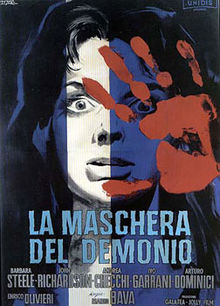 Story of movie Black Sunday 1960 Film :
Story of movie Black Sunday 1960 Film : 